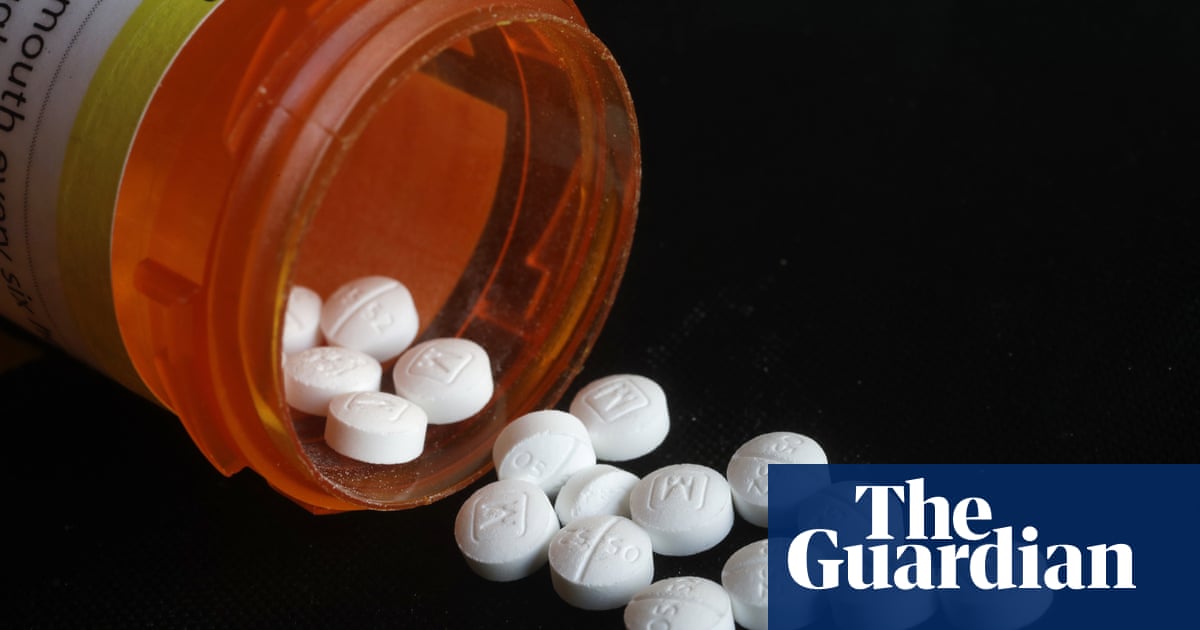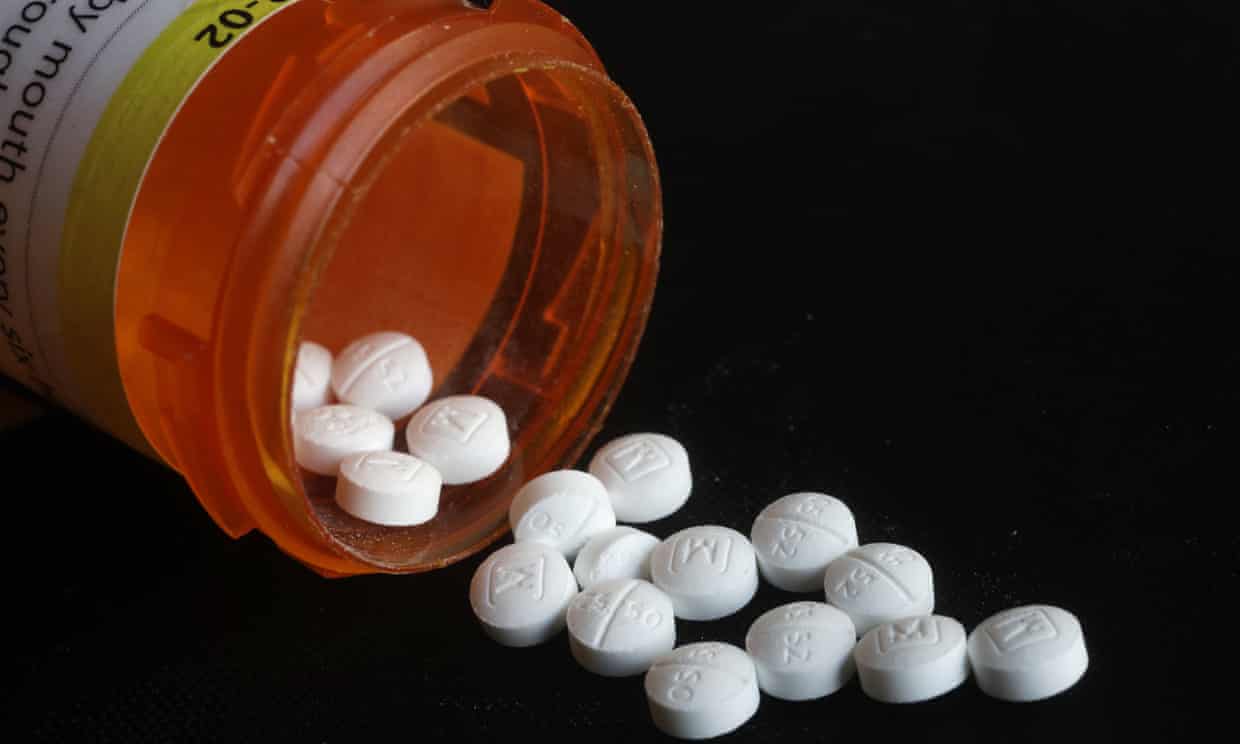Report reveals severe lack of services for UK opioid painkiller addicts


Just two free services specifically deal with opioid painkiller addiction in the UK, according to a report seen by the Guardian, prompting experts to warn that there could be a “hidden epidemic” of sufferers.
Clinicians worry that those experiencing an addiction to opioids prescribed by GPs feel uncomfortable at traditional drug misuse treatment centres, causing them to not seek help.
The shortage was disclosed in a recent Public Health England report on prescription drug dependence, but has been unreported until now. Other experts consulted by the Guardian said they were unaware of any other such service.
And with no dedicated NHS treatment centre and only one council-funded service, experts have warned that the problem will continue to grow.
The Prescribed Medication Support Service in Mold, north Wales, and the Bridge Project in Bradford, are both run by a single counsellor and treat only a fraction of sufferers.
It is known that half a million people in England who have been prescribed opiate medication have been taking them for more than three years, but some clinicians and academics think the number of people experiencing issues with the drugs could be much higher.
Dr Yasir Abbasi, a clinical director for addiction services at one of the largest NHS mental health trusts, said specific treatment services were needed to tackle the problem.
“I feel there’s a hidden epidemic around this. The majority [of addicts] would be invisible because they would be people in primary care, who are prescribed this and are overusing the prescription, refilling the prescription earlier or topping up in other ways,” said Abbasi.
Abbasi, who works for South London and Maudsley NHS Foundation Trust, said the number of people experiencing a problem was likely to run into the millions.
Those experiencing an addiction to opioids prescribed by a GP who do not live near either service are often referred to services that cater largely to people with addictions to illicit drugs, such as heroin.
The service in north Wales is run by the NHS and the one in Bradford is funded by the council.
Harry Shapiro, the director of the online drug information service DrugWise, said it was likely people were not receiving help because of the stigma associated with these services.
“Most substance misuse services haven’t got the funding to take on a load of new patients with a different sort of drug problem and people who turn up with a prescribed painkiller problem probably feel uncomfortable there. Unless you set the services running, you don’t really get a sense of how big a problem you’ve got,” said Shapiro, who added that “on an anecdotal basis we probably already are at crisis point”.
In February, it was revealed that more than half of councils in England have cut their budgets for alcohol and drug treatment, even though admissions to hospital for problems related to addiction are soaring.
Cathy Stannard, an NHS complex pain consultant who contributed to a recent Public Health England report on prescription drug dependency, said there was “almost a reluctance” among clinicians to address opioid painkiller addictions because of the lack of available treatment. She added that a locally delivered NHS treatment service was “not a difficult financial case to write”, when the cost to treat an addict was likely to be much less than a year’s prescription of opioids.
There are no government statistics on the number of people who have experienced addiction to prescription drugs, but some private clinics have seen a surge in demand for treatment.
Admissions to UK Addiction Treatment Centres (Ukat), the country’s largest provider of private rehabs, for prescription drug addiction have risen by 28% in the past two years and 40% since 2015. Between 2015 and 2018, there were 488 admissions while in 2019 there have so far been 139.
However, private treatment can be costly. A seven-day detox at a rehab facility can start at about £2,000, while a 28-day residential admission can cost more than £4,000.
James Davies, a reader in mental health at the University of Roehampton who is secretariat to the all-party parliamentary group on prescription drug dependence, said the issue would not be resolved without the launch of dedicated services. “What’s at crisis point is the fact that we don’t have the provision necessary to help people come off these drugs and we need that,” he said.
Opioid painkillers, such as fentanyl or morphine, are often highly effective in managing severe pain but can also be addictive. While many people experience dependency after prolonged use of the drugs, those who become addicts use the drugs for other purposes than they were prescribed for or take more than required.
Abbasi pointed out that while in some cases, such as when a patient was terminally ill, it was necessary for these drugs to be taken for long periods, for other issues – such as chronic pain – this could be problematic. “The longer they use it, the more the chance they might become dependent on it,” he said.
Data from the Department for Health showed a 60% increase in opioid prescriptions over the past 10 years, with the number of medicines dispensed outside of hospital settings rising from more than 14m in 2008 to 23m in 2018.
Though the annual number of prescriptions for opioid pain-relief medicines has slightly decreased since 2016, Stannard stressed: “The challenge lies in treating those who are already dependent with no clinical benefit.”
Prof Helen Stokes-Lampard, the chair of the Royal College of GPs, said the lack of services specifically dedicated to treating addiction to prescription drugs was concerning.
She added: “Patients who need these services will often have unique health needs to address that differ from other forms of addiction – often the medical reason they started taking these drugs in the first place.
The healthcare regulator Nice said it had been asked by the Department of Health and Social Care to develop a guideline on the safe prescribing of and withdrawal from drugs associated with dependence.
 Pathways Drug Rehabilitation Luxury Addiction Treatment & Detox Center
Pathways Drug Rehabilitation Luxury Addiction Treatment & Detox Center


